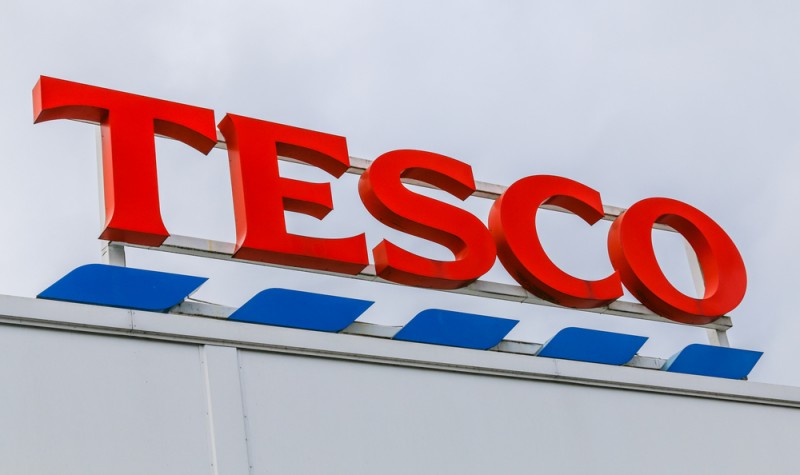How management change has made Tesco a star buy

Less than three years ago, Tesco (LON:TSCO) was in dire straits. It had recently announced a possible overstatement of profits, its sales growth was negative and its outlook was downbeat. Fast forward to today and the company’s potential for rising profitability as well as an increasing share price is high.
The catalyst for this revolution is the company’s CEO, Dave Lewis, and the rest of its management team. Although a relative unknown when he took the job in September 2014, he has had a huge influence on the company’s fortunes. He and his team have made the business smaller, simpler and provided a clear sense of identity for a company which was becoming lost in its pursuit of conglomerate-like status.
The speed of change at the company has probably surprised most investors. However, it shows the difference which can be made by having the right management team in place. In my view, a company’s reputation, balance sheet strength and economic moat count for little unless the right team is in place to manage it.
Scope for change
Prior to the arrival of Dave Lewis as CEO, Tesco had become a jack-of-all-trades and, arguably, a master of none. It had diversified into a number of frivolous sectors which ultimately sapped management time and investment capital away from the majority of its business. For example, it sought to become a major player in the USA grocery industry via its Fresh & Easy brand. While it was at times able to post strong LFL sales growth, high profitability proved elusive despite significant investment.
At the same time as expanding into the USA, Tesco also sought to diversify its operations away from groceries. While this is understandable in some respects, since the company had become the dominant grocery store in the UK, the choice of industries was sometimes difficult to follow. For example, Tesco decided to sell its own tablet, purchased garden centres, coffee shops and even ventured into used car sales for a short while. None of these ventures proved as successful as had been envisaged and they created, rather than reduced, risk in my opinion.
All of these changes were being put in place at a time when Tesco faced its biggest challenges in a number of years. UK consumer spending was under severe pressure and no-frills alternatives such as Lidl and Aldi were grabbing market share. At a time when it should have been seeking a ‘lean and mean’ efficiency drive, Tesco had lost focus and discipline.
Major changes
The enormity of the task facing Tesco’s new management team was difficult to overestimate. However, a number of simple, logical decisions helped to gradually turn the company around and even more importantly, set out a clear vision for how the company would change in the long run.
…a number of simple, logical decisions helped to gradually turn the company around…
First, Tesco returned to being a grocer. Non-core activities were shunned in order to create a simpler, more efficient and more manageable entity. Second, Tesco focused on its UK operations. While controversial at the time given its success in territories such as Korea, this decision allowed the company’s management to drive all capital into improving the bulk of the business. Third, Tesco sought to compete with lower-cost rivals through reducing the ranges on offer, cutting costs and also investing in store refurbishments and customer service.
The latter of these changes helped to create a degree of customer loyalty and product differentiation versus Aldi and Lidl. This resonated well with customers at a time when the UK economy was emerging from the financial crisis. Although still highly price conscious, real-terms wage growth helped to dilute the focus on price and make other factors such as convenience, customer service and quality more important to the company’s target market of customers.
Future strategy
While Tesco has become a better business under its current management team, it faces an uncertain future. Inflation and wage growth in the UK are now at the same level of 2.3%. However, it seems highly probable that inflation will surpass wage growth in the coming months, since a weak pound is gradually filtering through into higher prices. This is likely to cause a squeeze on consumer spending and lead to a more price conscious consumer.
In response, Tesco is continuing to improve its financial strength and core profitability. It reduced net debt by 27% in the most recent financial year and is on course to deliver £1.5 billion in cost savings over the medium term. This could allow it to reach an operating margin of 4% by 2020, which would represent an almost doubling of its current operating margin of 2.3%. Given the potential for lacklustre sales growth due to weakness in consumer spending, efficiency and sustainability measures could help the company to outperform its rivals.
Alongside this, investment in its core products such as the £300 million announced in its full-year results may also prove to be a sound strategy to pursue, given the likelihood of greater competition within the UK grocery industry.
Outlook
In my opinion, Tesco is one of the most successful recent turnaround stories in the FTSE 350. Although its recovery is not yet complete, its transition from failure to success has been swift and at least partly unexpected. It is now positioned to deliver double-digit EPS growth in each of the next two years and has become a more efficient and sustainable growth opportunity for investors.
Key to this has been its current management team. They have refocused the business on the UK, left behind dreams of a conglomerate-like business model and sought to deliver an improved product offering to compete for customers. While economic difficulties could lie ahead, the continued focus on efficiency and the possible synergies from the Booker acquisition could drive Tesco’s profitability and share price higher.
Comments (0)